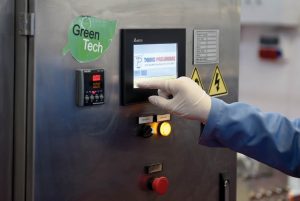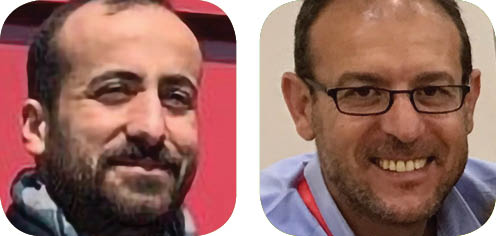In general, industrial zones fundamentally provide several types of infrastructure and services to attract national and international investments. They provide customized consultations for in-situ and potential investments, factories, micro, small, and medium enterprises (MSMEs), with a clustering approach. Thus, different specialties and expertise from diverse sectors are required to provide sustainable, world-standard, and efficient infrastructures and services. Moreover, they are required to provide operation and maintenance for various utilities to improve and accordingly boost the economy.
In the State of Palestine, five industrial parks are under development to support creating an independent economy, increasing the employment rate, and improving the quality of life for Palestinians. The industrial parks involve public and private partnerships. The former acts as a regulator and the latter acts as a developer and investor. The industrial zones in the State of Palestine face multi-fold challenges partly due to limitations in technical knowledge, management and operation capacities, governmental incentives, adequate laws and regulations, manuals, and procedures.
To address some of these limitations, it is proposed to test the establishment of a Special Purpose Company (SPC) as a business model for management and operation of industrial parks in the State of Palestine. The SPC is a concept that integrates various sectors and corporations with a variety of investors, expertise, and backgrounds in an organizational structure pertinent to a legal frame. This concept provides the opportunity to entice the national and international corporations to be incubated in a legal entity that will exchange knowledge and know-how, which will recognize the obstacles and turn them into opportunities.
On the other hand, input materials for production are quite expensive, and they constitute a determined factor in competition. For instance, electricity constitutes 20 to 40 percent of the cost of the final product.
According to the “Securing Energy for Development in the West Bank and Gaza,” a report published in 2017 by The World Bank Group, more than 90 percent of the electricity used in the State of Palestine is imported. The key solution to overcoming this challenge is to invest in sustainable renewable energy such as solar energy. Therefore, the development of the energy sector is essential in order to improve the Palestinian economy. Electricity is one of the most important inputs in the production and manufacturing process. The energy tariff, as mentioned earlier, contributes 20 to 40 percent to the cost of the final product.

The current electricity legislations related to the renewable energy sector in the State of Palestine have two mechanisms: net metering and the power purchase agreement. The net-metering mechanism is used for projects that generate less than 1 MWp, as well as for the beneficiary households and standalone factories. In addition, the net-metering system requires an additional meter to monitor the generated electricity. Moreover, an agreement should be maintained between the customer and the distribution company to exchange the electricity with the national grid. Over and above, a monthly and annual settlement should be conducted between the customer and distributer. The power purchase agreement used for projects (which generate more than 1 MWp) requires an agreement between the beneficiary generator (investor) and the carrier. The mechanism is to sell the generated electricity to the distributer for a certain price, less than the applicable tariff, and this price should be approved by the distributor and the government.
The abovementioned systems are not upgraded enough to meet the vision of the industrial parks, which is to provide the electricity at a competitive tariff price to benefit and attract the investors. However, legislations shall be upgraded to adapt the SPC mechanism that elevates the Palestinian industrial parks to an international level. This system will apply a modern scheme that aims to exploit the infrastructure inside the industrial parks by pooling the generated electricity and distributing it directly to the operated factories. Moreover, the surplus of generated electricity will be sold to the carrier of the national grid. This will allow the industrial park to offer more suitable, sustainable, and economical electricity incentives for all investors jointly, in contrast to the current systems that deal separately with each factory. The current frame is nonadaptive and impractical, and does not fulfil the requirements of the industrial park.
Attracting national and international investors requires providing a cheaper and reliable source of electricity and effective energy management systems (EMS) for industrial parks in the State of Palestine. It requires implementing a business model with a special technical capacity and a strong financial capability to provide quality customer services for stakeholders. Thus, a good and flexible relationship among the developers of industrial parks, the electricity distribution companies, and other national and international investors’ expertise is essential. This relationship can be demonstrated by creating the SPC. The SPC will manage and monitor the investments, operations, and maintenance of the solar energy utilities.
Ideas are not set in stone. When exposed to feasible business plans with collaboration, consent, and applause, they adapt and morph into their most potent form. SPCs will enhance the credibility of Palestinian public-private partnerships (PPP) and trigger the most intriguing ideas by allowing international donors and global corporations to count on the Palestinian SPCs.
Iyad Demaidi works as a local representative of KanDenKo Co., Ltd. in Palestine, Senior consultant for Japan International Cooperation Agency (JICA). Previously he worked for Consolidated Contractors International Company (CCC) as a planning Engineer for the new Abu Dhabi international airport project, He has B.Sc. in civil engineering Specialized in engineering management.
Husam Tubail works for UNDP as a Programme Design and Implementation Analyst with special focus on environment, climate change and energy. He has an MSC in Environmental Engineering from the University of Newcastle upon Tyne in the UK.


